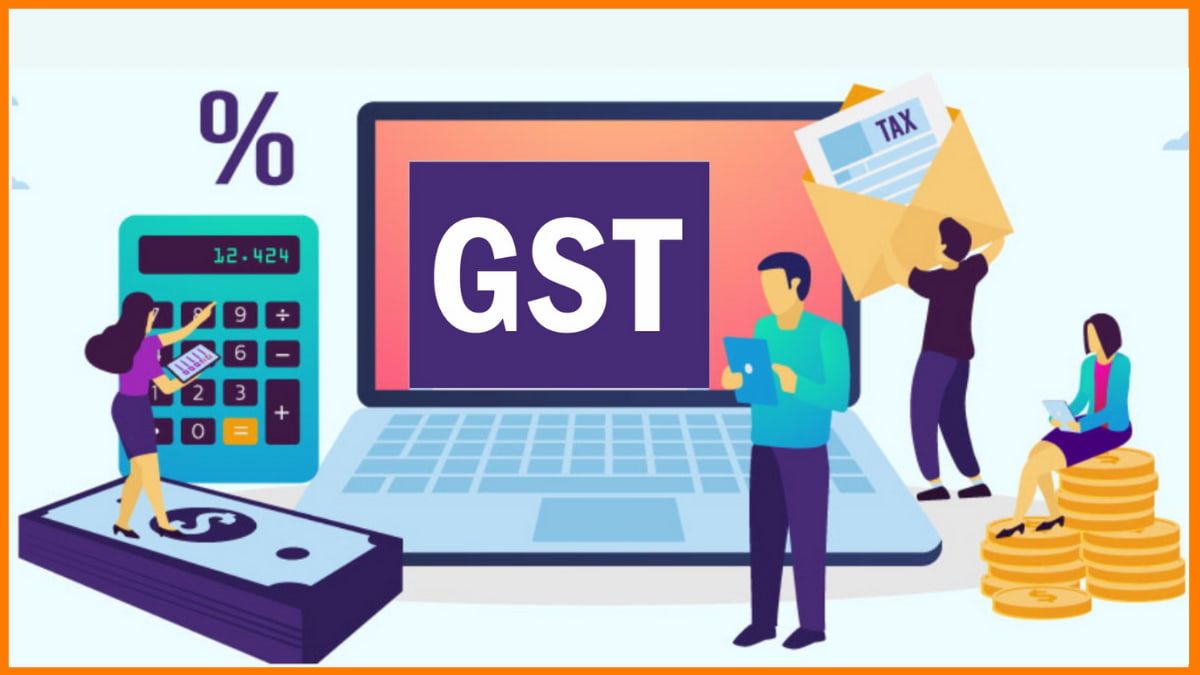Why Choose CFO Account & Services for GST Registration in Singapore: Top Advantages Explained
Why Choose CFO Account & Services for GST Registration in Singapore: Top Advantages Explained
Blog Article
From Beginning To End: A Thorough Summary of GST Enrollment and How to Effectively Register Your Organization
Browsing through the elaborate process of GST registration can be a critical step for any kind of organization wanting to develop compliance and legitimacy in the market. Why choose CFO Account & Services for GST registration in Singapore. From understanding the basic ideas of GST to satisfying the qualification standards and gathering the essential paperwork, the trip in the direction of effective enrollment can usually feel like a difficult job. Nonetheless, with the ideal support and understandings, services can streamline this procedure and unlock the advantages that feature being a signed up entity.
Comprehending GST and Its Significance
Understanding the Goods and Solutions Tax Obligation (GST) and its value is crucial for organizations operating in economic climates where this tax system is executed. GST is a value-added tax obligation imposed on the supply of solutions and items, designed to simplify the indirect taxation framework. It changes several cascading tax obligations imposed by the state and central federal governments, developing a unified market across the country. Among the key advantages of GST is the removal of the plunging effect of tax obligations, causing boosted effectiveness in the tax obligation system. By allowing organizations to assert input tax credit histories on the tax obligation paid on purchases, GST ensures that taxes are calculated only on the value included at each stage of the supply chain.
Additionally, GST promotes conformity and transparency in the tax program, reducing tax obligation evasion and boosting government revenue. It simplifies tax management and compliance for businesses by offering an usual platform for tax obligation filing and repayment. In general, a thorough understanding of GST is important for organizations to effectively navigate the complexities of the tax system and guarantee conformity with the law.
Eligibility Criteria for GST Enrollment
To sign up for GST, businesses must fulfill particular qualification criteria outlined by the tax obligation authorities. The key demand for GST enrollment is that business's accumulated turn over exceeds the threshold established by the government, which varies by state. As of the current guidelines, services with a yearly turn over of Rs. 40 lakhs or more in many states should register for GST. For businesses running in northeastern states and hilly regions, the limit is Rs. 20 lakhs. In addition, specific organizations, such as those associated with inter-state supply of items or solutions, laid-back taxable individuals, and non-resident taxed individuals, are required to register for GST no matter of their turn over.
In addition, services associated with providing goods or solutions through ecommerce systems are likewise mandated to register for GST, irrespective of their turn over. Additionally, companies that were registered under the previous tax obligation program, such as VAT, import tax obligation, or solution tax obligation, need to shift their enrollment to GST. Complying with these qualification criteria is vital for services looking for to follow the GST regulations and prevent any type of charges for non-compliance.
Records Needed for GST Registration
When requesting GST registration, companies must ensure they have all the necessary papers in order to finish the procedure efficiently and effectively. The crucial papers needed for GST registration consist of evidence of service enrollment or consolidation such as the Certificate of Consolidation, collaboration action, or enrollment certificate. Additionally, organizations require to provide evidence of address for the primary business, which can be supported by documents like an energy costs or a rental contract.
In addition, records verifying the identity and address of the marketers or companions associated with business, such as PAN card, Aadhaar card, or key, are necessary for GST registration. Savings account statements or canceled cheques showing the name of the service, address, and account read more number are also necessary to verify the bank account details given during registration.
Guaranteeing all the needed files remain in order and readily available will certainly simplify the GST enrollment procedure and aid businesses stay clear of complications or delays.
Online Enrollment Process for GST

After completing the kind, supporting files require to be uploaded as per the guidelines provided. These files usually include proof of service registration, address evidence, bank statements, and identification proof of the company proprietor. It is vital to guarantee that all files are clear, valid, and posted in the defined layout to stay clear of hold-ups in the registration procedure.
When the application and papers are sent, companies can track the status of pop over to this site their GST registration online. If there are no problems or additional details required, the GST enrollment certification will be issued online, marking the effective conclusion of the online enrollment process.
Post-Registration Conformity and Tips

Companies should remain updated on any kind of adjustments in GST laws, rates, or compliance procedures to make needed modifications quickly. Looking for professional help from tax experts or accounting professionals can also help companies navigate complex GST compliance requirements efficiently.
Final Thought
To conclude, the procedure of GST registration is crucial for businesses to adhere to tax guidelines and operate lawfully. By comprehending the eligibility standards, collecting the necessary documents, and finishing the online enrollment procedure, organizations can efficiently sign up for use this link GST. When needed to make sure smooth operations., it is vital to remain certified with post-registration demands and look for expert guidance (Why choose CFO Account & Services for GST registration in Singapore).
Organizations that were registered under the previous tax obligation regimen, such as VAT, excise task, or solution tax obligation, have to shift their enrollment to GST. The crucial papers needed for GST registration consist of evidence of service registration or unification such as the Certification of Incorporation, collaboration deed, or enrollment certificate.Upon successful conclusion of the GST enrollment process, organizations must quickly adhere to post-registration compliance requirements to maintain regulatory conformity and guarantee smooth operations.In final thought, the procedure of GST enrollment is essential for companies to comply with tax policies and run legally. By understanding the qualification standards, gathering the essential files, and finishing the on-line enrollment procedure, organizations can effectively sign up for GST.
Report this page